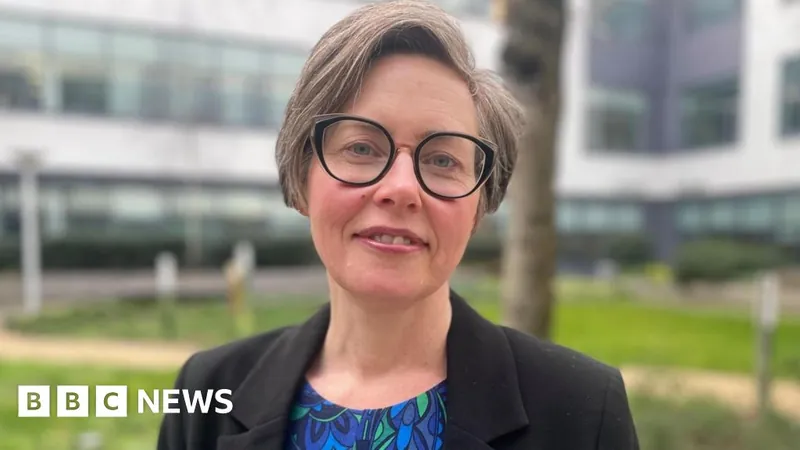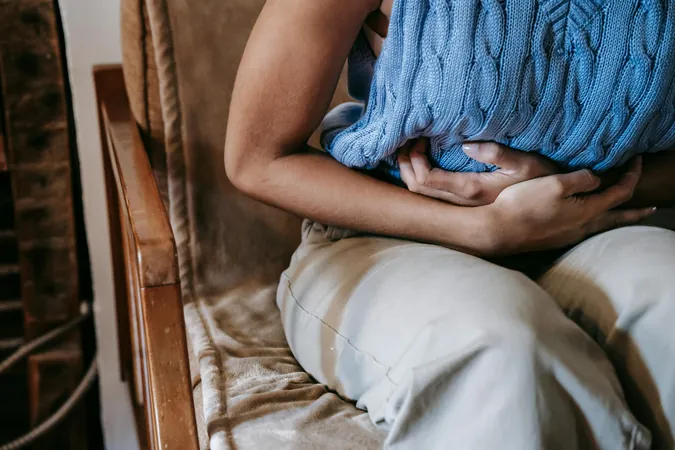
Stark Vaccine Disparity: Pupils from Deprived Areas Miss Out on Life-Saving HPV Jab
2025-06-17
Author: Mei
In a growing public health concern, experts are alarmed at the sharp decline in HPV vaccinations among school-age children in Scotland's most impoverished areas. The HPV vaccine, typically administered to pupils aged 12 and 13, plays a critical role in preventing cervical cancer by protecting against human papillomavirus (HPV) infections.
Since its launch in 2008, Scotland's HPV vaccination program has been a remarkable success, with no cervical cancer cases detected in fully vaccinated women. However, new statistics reveal that vaccination rates are 20% lower in the nation’s poorest communities compared to their affluent counterparts, raising eyebrows among public health officials.
What is HPV?
HPV encompasses a group of viruses spread through sexual contact, with most infections clearing up on their own. Unfortunately, persistent infections can lead to severe health complications, including various cancers in both men and women.
Rising Concerns Post-Pandemic
Dr. Claire Cameron, a consultant in health protection at Public Health Scotland, notes that vaccine uptake has been steadily declining over the past decade and that disparities have worsened since the Covid crisis began. "This virus affects everyone, and we need universal vaccination for broad protection," she stressed.
Data Delve: The Disparity in Vaccination Rates
Recent figures indicate that the average HPV vaccination coverage among last year's S1 pupils was only 71.5%, with girls showing higher rates than boys. In the least deprived areas, vaccination coverage shot up to 82.1%, while it plummeted to a concerning 59.9% in the most deprived regions.
Understanding the Disconnect
Dr. Cameron identifies several factors contributing to lower vaccine uptake, including waning vaccine confidence and altered engagement with healthcare services post-pandemic. The program's delivery in schools has been challenged by shifts in how young people interact with their education.
Educational Initiatives Making a Difference
In response to these alarming trends, Edinburgh University's Bioquarter has initiated workshops in local schools to educate students about HPV and the importance of vaccinations. Dom Cairns-Gibson, leading efforts at Castlebrae High School in Craigmillar, reported an increase in vaccination confidence among students, which spiked during the program's first year.
"We've fostered a partnership with the school, allowing students to engage with trusted scientists who provide this vital information. A lot of students didn't even realize the importance of HPV, often confusing it with HIV," he explained.
Empowering Pupils Through Knowledge
At Castlebrae High School, students are encouraged to ask questions, discuss the broader benefits of vaccination, and even observe various HPV strains through microscopes, reinforcing their understanding and dispelling myths in a supportive learning environment.
As the disparities in HPV vaccination rates reveal a pressing public health issue, initiatives like these serve as a beacon of hope to reverse the trend and ensure that every child, regardless of their socio-economic status, receives the protection they need.



 Brasil (PT)
Brasil (PT)
 Canada (EN)
Canada (EN)
 Chile (ES)
Chile (ES)
 Česko (CS)
Česko (CS)
 대한민국 (KO)
대한민국 (KO)
 España (ES)
España (ES)
 France (FR)
France (FR)
 Hong Kong (EN)
Hong Kong (EN)
 Italia (IT)
Italia (IT)
 日本 (JA)
日本 (JA)
 Magyarország (HU)
Magyarország (HU)
 Norge (NO)
Norge (NO)
 Polska (PL)
Polska (PL)
 Schweiz (DE)
Schweiz (DE)
 Singapore (EN)
Singapore (EN)
 Sverige (SV)
Sverige (SV)
 Suomi (FI)
Suomi (FI)
 Türkiye (TR)
Türkiye (TR)
 الإمارات العربية المتحدة (AR)
الإمارات العربية المتحدة (AR)